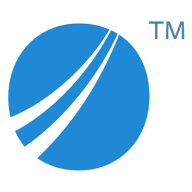

Pega Platform and TIBCO iProcess Suite compete in process automation solutions. Pega Platform seems to have the upper hand with its robust features and user satisfaction.
Features: Pega Platform offers advanced case management, dynamic rules, and a high level of customization through analytics. TIBCO iProcess Suite is known for integration capabilities, complex event processing, and business process management features.
Ease of Deployment and Customer Service: Pega Platform provides a streamlined deployment process and efficient customer service, enhancing the user experience. TIBCO iProcess Suite offers strong integration support even though its deployment can be more complex, focusing on process handling and service quality.
Pricing and ROI: Pega Platform presents reasonable setup costs focusing on strong ROI through agile development and deployment. TIBCO iProcess Suite may involve higher initial costs but aims for high ROI through scalability and robust integration capabilities.
| Product | Market Share (%) |
|---|---|
| Pega Platform | 3.7% |
| TIBCO iProcess Suite | 0.8% |
| Other | 95.5% |

| Company Size | Count |
|---|---|
| Small Business | 11 |
| Midsize Enterprise | 16 |
| Large Enterprise | 69 |
Pega Platform provides flexible business process management with a focus on rapid application development and automation through a low-code approach, enhancing efficiency across sectors.
Pega Platform is renowned for its ability to streamline operations with robust automation features, including robotic process automation and decision-making capabilities. Its intuitive interface and workflow management contribute to a reputation for enhancing business processes. Although users face challenges with integration limitations and high licensing costs, they benefit from rapid deployment and efficient process adaptations. The unified architecture reduces complexity, while case management and integration services support digital transformations in sectors such as banking, insurance, and healthcare.
What are the key features of Pega Platform?
What benefits and ROI should users expect?
In industries like insurance, banking, healthcare, and government, Pega Platform is implemented to automate diverse workflows, supporting initiatives from claims processing to customer onboarding. Enterprises use Pega for case management and digital transformations, valuing its out-of-the-box integrations and real-time reporting capabilities to boost operational automation and enhance customer experiences.
We monitor all Business Process Management (BPM) reviews to prevent fraudulent reviews and keep review quality high. We do not post reviews by company employees or direct competitors. We validate each review for authenticity via cross-reference with LinkedIn, and personal follow-up with the reviewer when necessary.